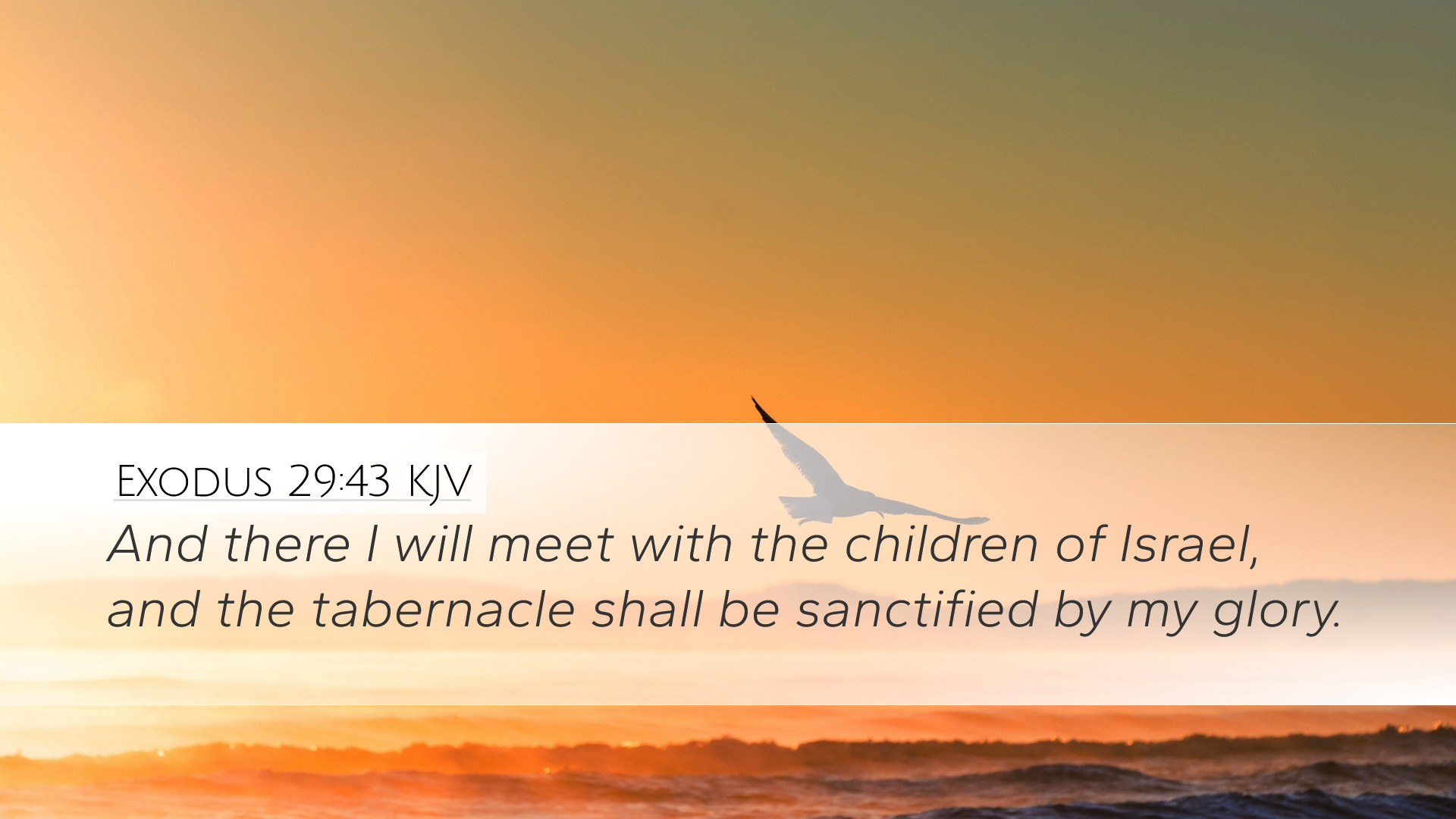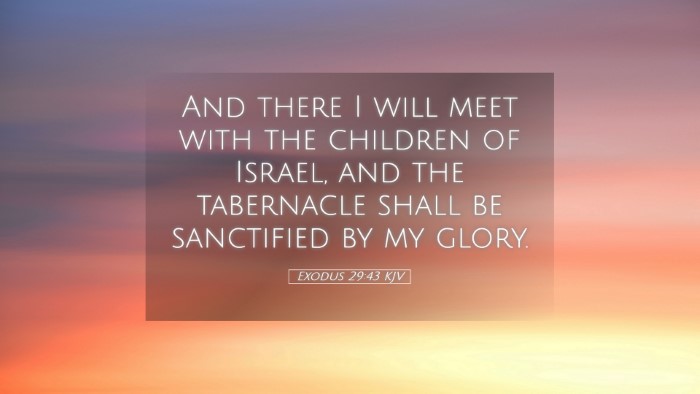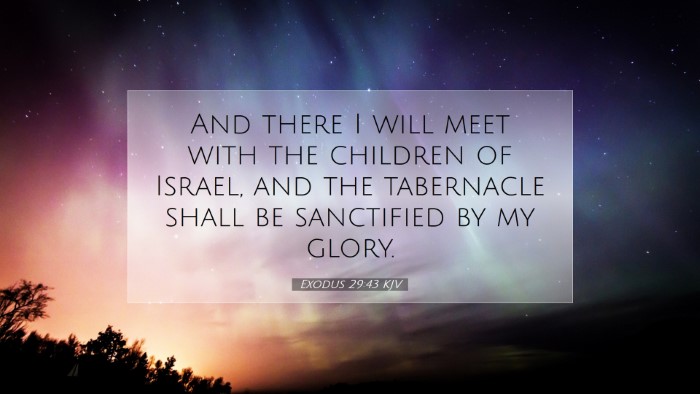Commentary on Exodus 29:43
Verse: "And there I will meet with the children of Israel, and the tabernacle shall be sanctified by my glory."
Introduction
Exodus 29:43 serves as a pivotal verse in the establishment of God's dwelling place among His people. This verse encapsulates the theological significance of the tabernacle as both a meeting place with God and a symbol of sanctification through divine glory. Both historical and contemporary interpretations provide a rich tapestry of meaning that is essential for understanding the overall narrative of God's redemptive plan.
Theological Insights
This verse offers profound insights into the nature of God’s presence with His people. Here, God emphasizes His intention to personally meet with the Israelites, which speaks to His desire for relationship and intimacy.
The Promise of Divine Encounter
Matthew Henry highlights this encounter as a demonstration of God's grace. He writes that God's promise to meet with His people signifies His willingness to dwell among them despite their failings. This reflects the nature of God as relational and merciful.
Sanctification and Glory
Albert Barnes elaborates on the phrase “the tabernacle shall be sanctified by my glory.” The glory of God, often understood as His manifest presence, is what sets apart the tabernacle as holy. This underscores the theme that holiness is not merely a state of being but an experience rooted in the presence of God.
Significance of the Tabernacle
Adam Clarke suggests that the tabernacle represents not only a physical structure but also a type of Christ. In the New Testament context, believers understand that Jesus is the ultimate fulfillment of God’s dwelling among us (John 1:14). This connection allows for a deeper appreciation of how Jesus embodies both the presence and holiness that the tabernacle foreshadowed.
Historical Context
The historical setting of Exodus reveals the Israelites in the wilderness, demanding a clear direction and comfort from God. This moment is significant as it marks the transition from a people in bondage to a community covenantally bound to God. This verse serves as a comfort and a source of hope in their journey.
Covenant Relationship
The covenant that God makes with Israel is foundational. Henry emphasizes that the establishment of the tabernacle is an essential part of God’s covenant, affirming His commitment to guide and protect His people. The meeting with the "children of Israel" demonstrates the continuity of this relationship.
Application for Today
For pastors, theologians, and students of the Bible today, this verse serves as a powerful reminder of God's enduring presence. It challenges contemporary believers to recognize their own 'tabernacle,' which may be their hearts or communities where God dwells through His Spirit.
The Community as Tabernacle
Drawing from the insights of these commentators, modern applications include the understanding that the church as a community is the body of Christ, where God’s presence becomes tangible. Christians are encouraged to create environments that reflect the holiness and glory of God, mirroring the sanctification described in Exodus 29:43.
Reflection on Divine Holiness
In understanding sanctification, all believers are called to pursue holiness in their lives, recognizing that it is only through the glory of the Lord that they are made holy. This calls for spiritual disciplines and a commitment to live out one's faith actively.
Conclusion
Exodus 29:43 is more than a historical note; it is a profound declaration of God’s desire to dwell among His people. As believers reflect on this truth, they are reminded of their identity and purpose within the divine plan. The legacy of the tabernacle helps to illuminate the path toward holiness and communal worship, encouraging a dynamic relationship with God fueled by His glory.
In summary, the combined insights from public domain commentaries illuminate the rich layers of meaning within Exodus 29:43, showing its relevance across time and the profound implications for believers today.


